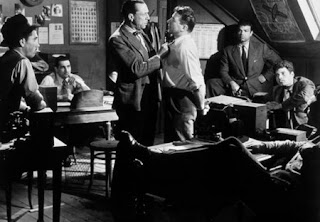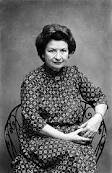The Manchurian Candidate
 |
| A very cold war. |
Richard Condon's Cold War thriller is best known as one of the recipients of Time Magazine's 10 Best Bad Books of 1959. In fact, as I discovered when going through Time's wonderful online archive, there is no such animal(!), the critic who originally reviewed the novel in July 1959 merely posited that Manchurian Candidate would not be out of place on a list of such books - this has given me new inspiration for the 2011 Bookhound Awards.....
There's no getting away from the fact that it is a very odd book, and the prose is quite unlike anything else you'll read. Having said which it has clearly been extremely influential - not least on British sci-fi and popular spy fiction including episodes from The Avengers and The Champions and Len Deighton's The Ipcress File. The novel was written at the height of the Cold War, a few years after the McCarthy "witch-hunts" (one of the central characters, Senator John Iselin, is clearly modelled on Senator Joseph McCarthy), and the end of the Korean War. The story concerns a young man, Iselin's step-son, Raymond Shaw. Raymond has a domineering mother, who's a mixture of Desperate Housewives/Stepford Wives and Bruno's Mamma from Strangers On A Train, beautiful on the outside, repulsive within, Mrs. Iselin is responsible for her husband's current status in politics, and is determined to get him all the way to the top of the D.C. greasy pole. Raymond meanwhile has been posted to Korea where he and some of his fellow GI's are captured, taken to Manchuria and brainwashed, where special attention is paid to Raymond. However the plot to turn Raymond into a superior Soviet killing machine starts to go awry when his commanding officer has flashbacks.
The whole story hooks into American paranoia about "Reds under the beds" engendered by such people as McCarthy, and Condon's prose heightens this. His style is extremely rambling, there are metaphors here like none you have ever read before, these are not just metaphors, but metaphors on Speed. Earlier critics have seen this as a major fault, a clear sign of "bad writing", but I think this is actually quite deliberate, the verbose, flowing over, tripping over its heels language actually adds to the feeling of growing hysteria. And paranoia and hysteria make a potent mix.
The brainwashing as experienced in The Manchurian Candidate is, I believe, fanciful, and I don't think (although here I may be wrong) that it would necessarily work in the way that Condon believed that it would, but again it's interesting to see how it links into half-known things about the Soviet Union. In the recently reviewed The man who mistook his wife for a hat, Oliver Sacks casually mentions that the experts on neurological problems were Russian. This would presumably have been known and viewed suspiciously twenty years earlier than Sacks' book.
Manchurian candidate and the 1956 film Invasion Of The Body Snatchers are clearly soul-mates, both tapping into deep-seated fears about the deceptiveness of appearances and the possibility of being invaded - either quite literally by the Russians, or by having your mind turned in a sinister fashion away from American values.
Manchurian candidate may not be the best written book ever, but I have a theory that bad books are often more revealing of the zeitgeist than good writing, which by its very nature is often timeless. For a dose of 1950's/'60's paranoia you really can't do better than read this book. Irritating at times it is also compulsively readable and the unmasking of Shaw's American operator is shocking even when you know what's coming. Try to see the 1962 film of The Manchurian Candidate too. I first saw this on TV as a kid, and was blown away by it. It does have the flaws of the book, the language, sometimes taken verbatim from the novel, can be odd, but the power of the story is compelling, and there are wonderful central performances from Angela Lansbury and Laurence Harvey. At times eerily prophetic the novel The Manchurian Candidate still has the power to stop you in your tracks, not bad going for a bad book.




.jpeg)





Comments
I don't think at heart it's claiming to be accurate or authentic, what it is doing is feeding into the zeitgeist and paranoia of the time, just as Don Segal's Invasion of the body snatchers would do.
Many thanks for your information!